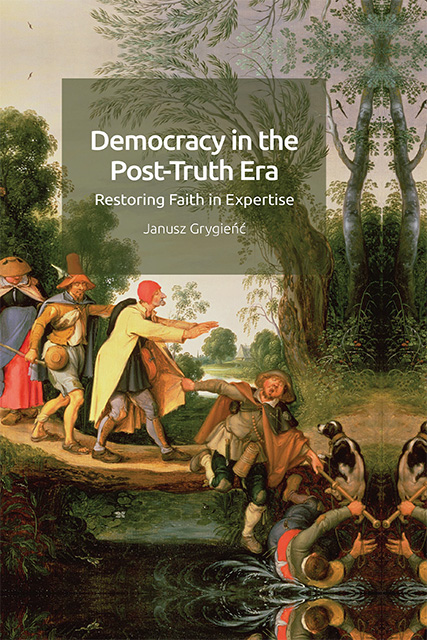Book contents
- Frontmatter
- Contents
- List of Tables
- Acknowledgements
- Introduction: Post-Truth and the Dawn of Illiberal Democracy
- Chapter 1 Expertise in Liberal Political Theory: Problems and Discrepancies
- Chapter 2 Expertise: Promises, Perils and Limitations
- Chapter 3 Laymen, Experts and Epistemic Dependence
- Chapter 4 Epistemic Dependence and Political Theory: Dependence Changes Everything
- Chapter 5 Inclusive Epistocracy, Competence and Popular Rule
- Epilogue: Living in a World of Too High Expectations
- Bibliography
- Index
Chapter 1 - Expertise in Liberal Political Theory: Problems and Discrepancies
Published online by Cambridge University Press: 18 October 2023
- Frontmatter
- Contents
- List of Tables
- Acknowledgements
- Introduction: Post-Truth and the Dawn of Illiberal Democracy
- Chapter 1 Expertise in Liberal Political Theory: Problems and Discrepancies
- Chapter 2 Expertise: Promises, Perils and Limitations
- Chapter 3 Laymen, Experts and Epistemic Dependence
- Chapter 4 Epistemic Dependence and Political Theory: Dependence Changes Everything
- Chapter 5 Inclusive Epistocracy, Competence and Popular Rule
- Epilogue: Living in a World of Too High Expectations
- Bibliography
- Index
Summary
Contemporary liberal political philosophers are not especially interested in the topic of expertise. In A Theory of Justice, whose content has been informing philosophical debates for half a century, Rawls only addresses the subject once, and very peremptorily at that. He simply does not consider it a philosophical problem in the strict sense – perhaps something which, at best, fits within the scope of non-ideal theory. It has to do with the application of ideal theory to reality, but it does not essentially impact Rawls’ considerations regarding his primary philosophical interests: justice, equality and liberty. In other words, the problem of expertise is technical in nature. So let it be handled by political and social scientists. Philosophers should focus on more fundamental issues, such as the aims of a political system rather than ways of arriving at one. Of course, one cannot tell to what extent Rawls bears responsibility for today's liberal thinkers’ neglect of the problem of expertise. It is certain, however, that unlike leftist thought, contemporary liberal thought is noticeably reluctant to deal with the subject. Starting with John Dewey's famous discussion with Walter Lippmann, through the manifestos of the New Left, to the Frankfurt School, from the beginning of the previous century the left has grappled with the role of experts in public debate, the decision-making competence of voters and the raison d’être of participatory democracy. In our time the value and significance of expertise has also been recognised by advocates of epistocracy. Thinkers like Jason Brennan have no doubt that experts are destined to govern because of their competence. The only problem, as they see it, is how to legitimise expert rule in the eyes of citizens.
I believe – and I will adhere to this view throughout this book – that in spite of sustained efforts to do so, liberal thought cannot go on ignoring the problem of expertise indefinitely. Like other theories of democracy, it cannot avoid examining what makes democratic government work. Without in-depth reflection on the nature, agent (who is an expert?), object (what is expertise about?) and limitations of expertise, a comprehensive and consistent examination of the problem of political power becomes impossible.
- Type
- Chapter
- Information
- Democracy in the Post-Truth EraRestoring Faith in Expertise, pp. 21 - 46Publisher: Edinburgh University PressPrint publication year: 2023



